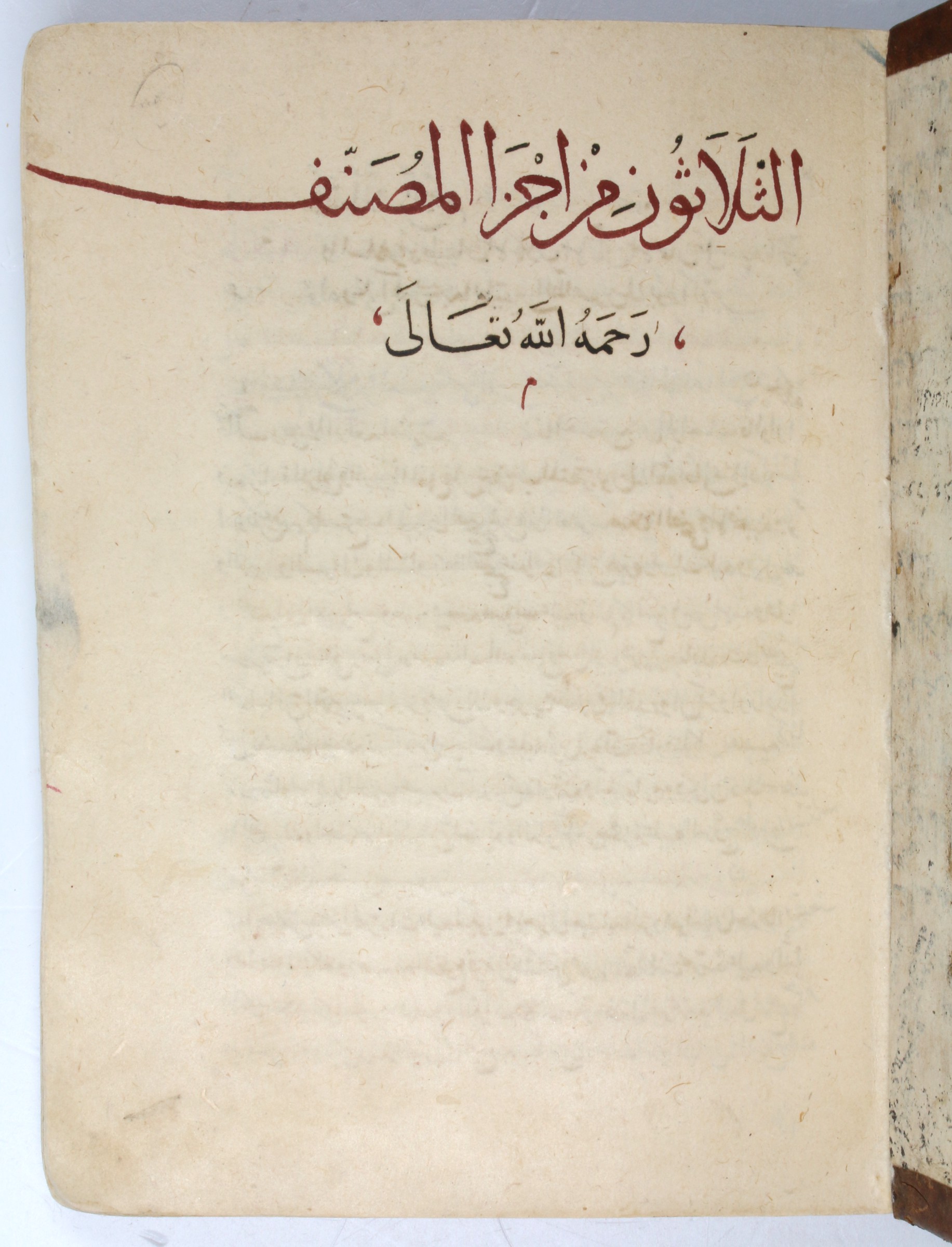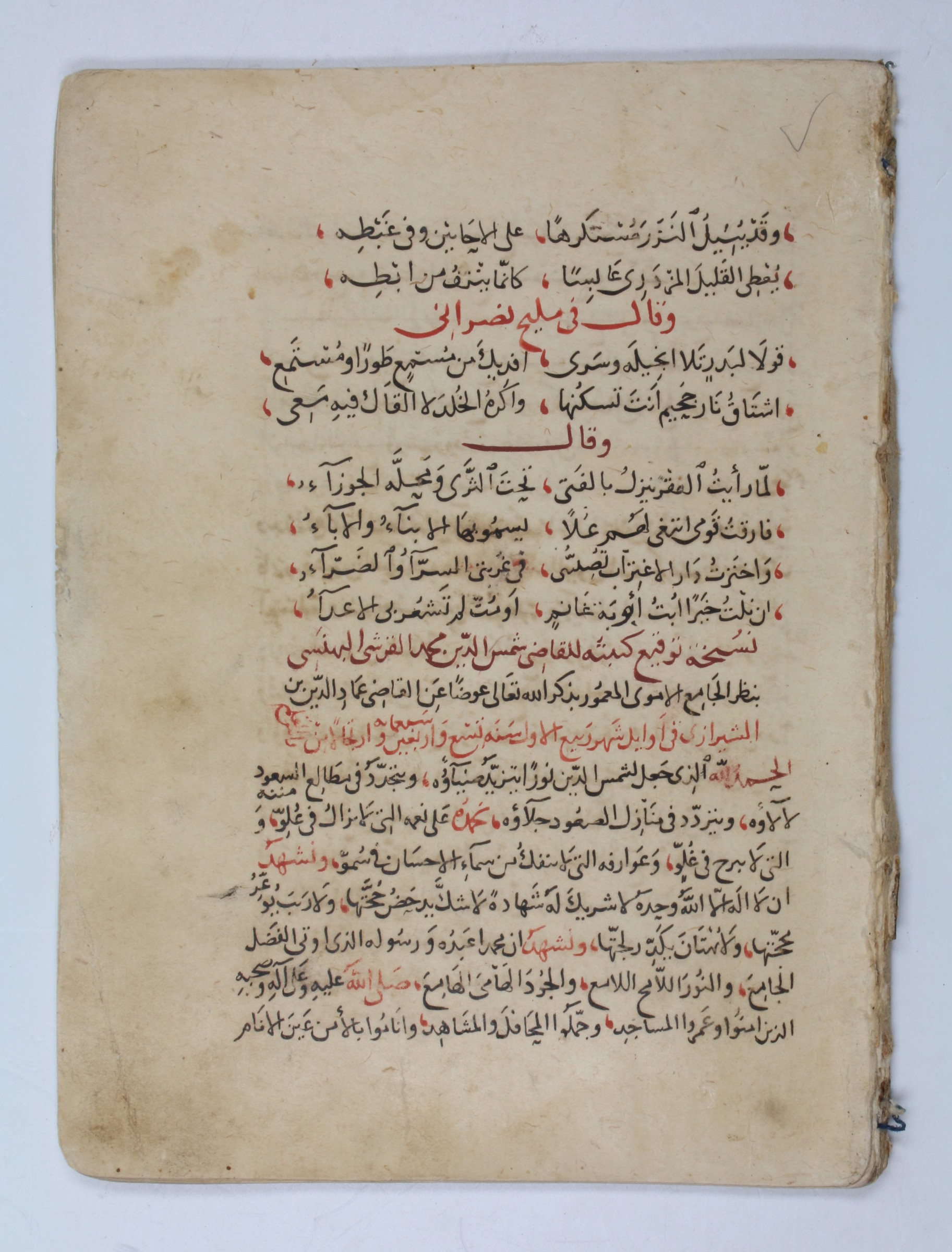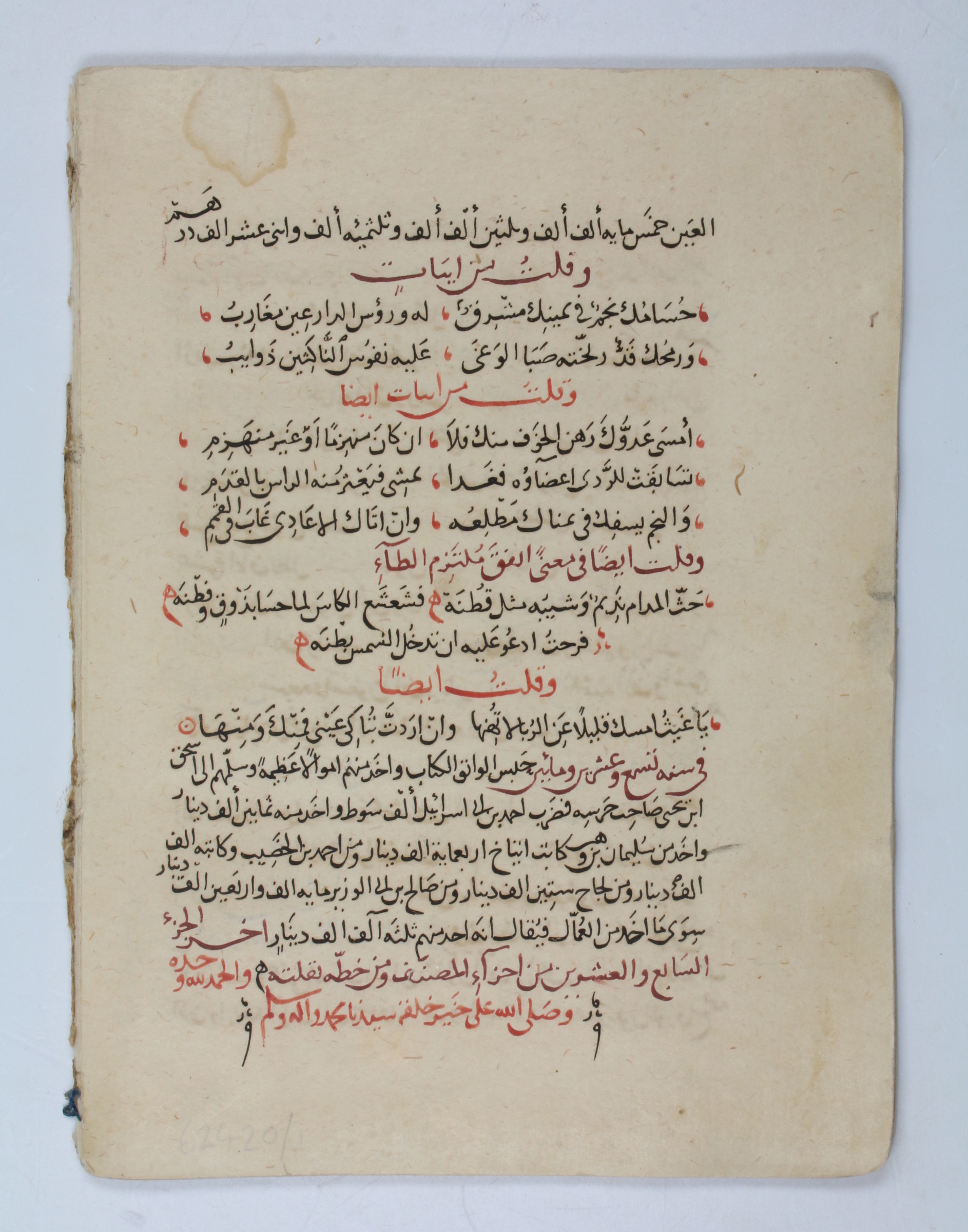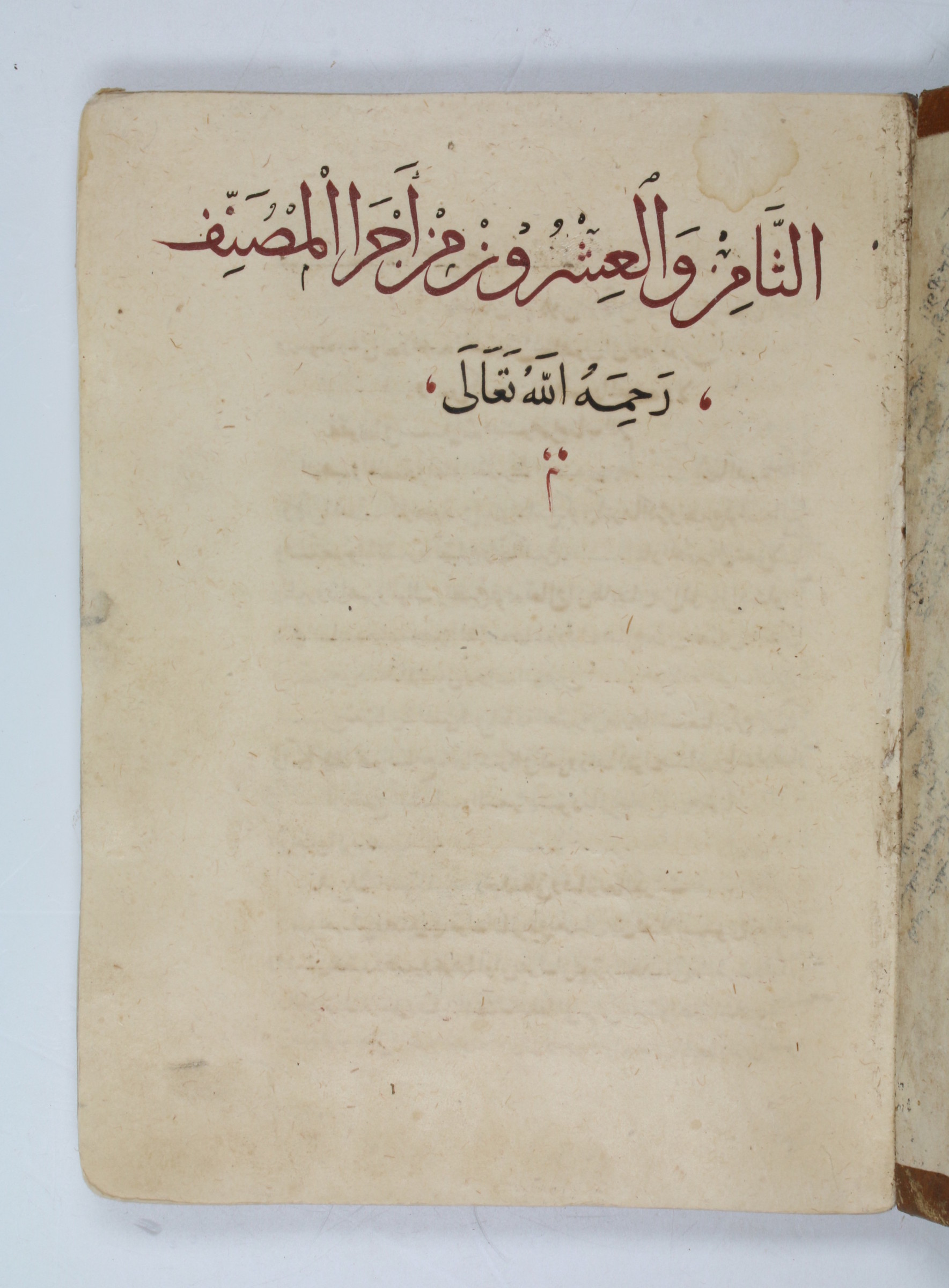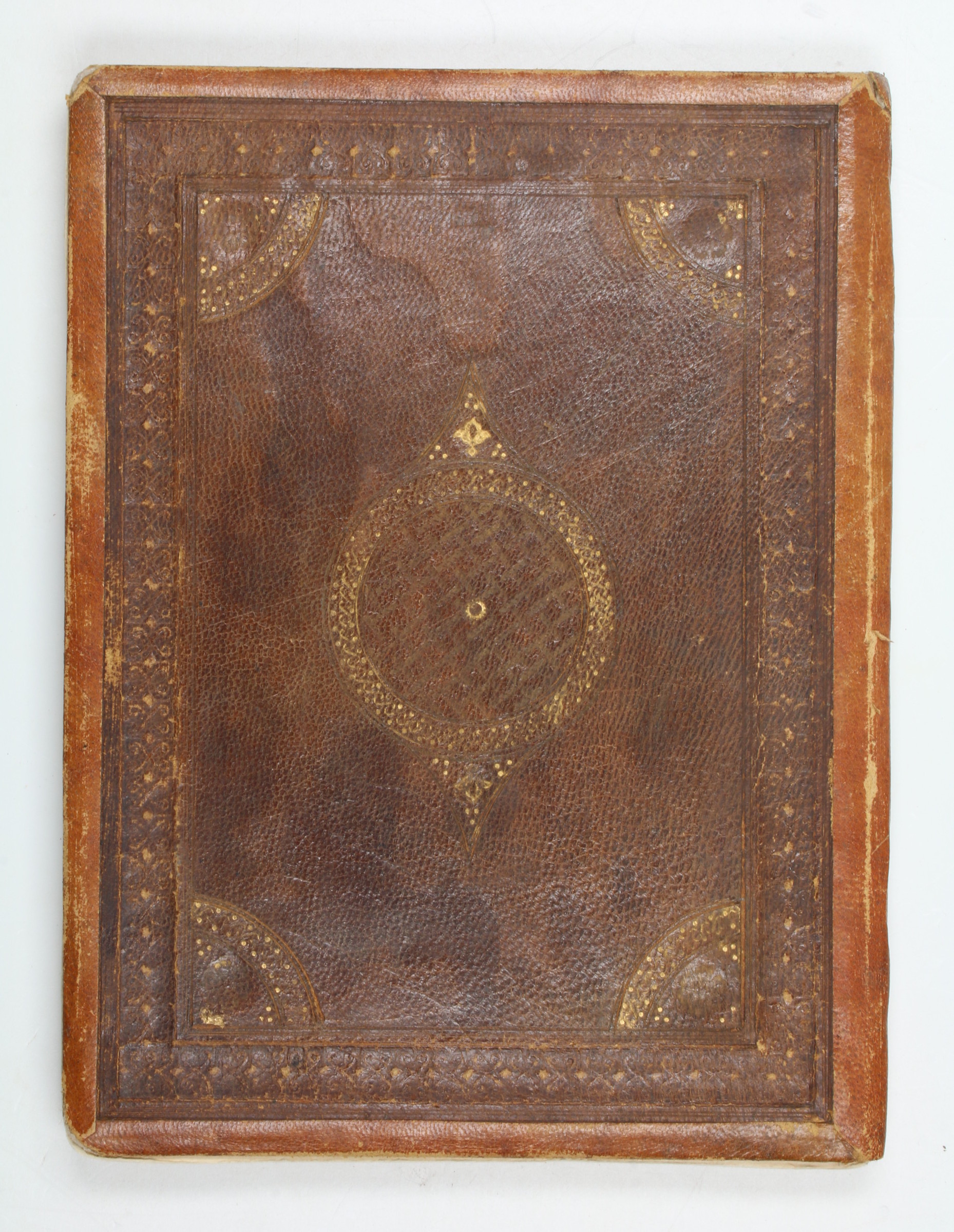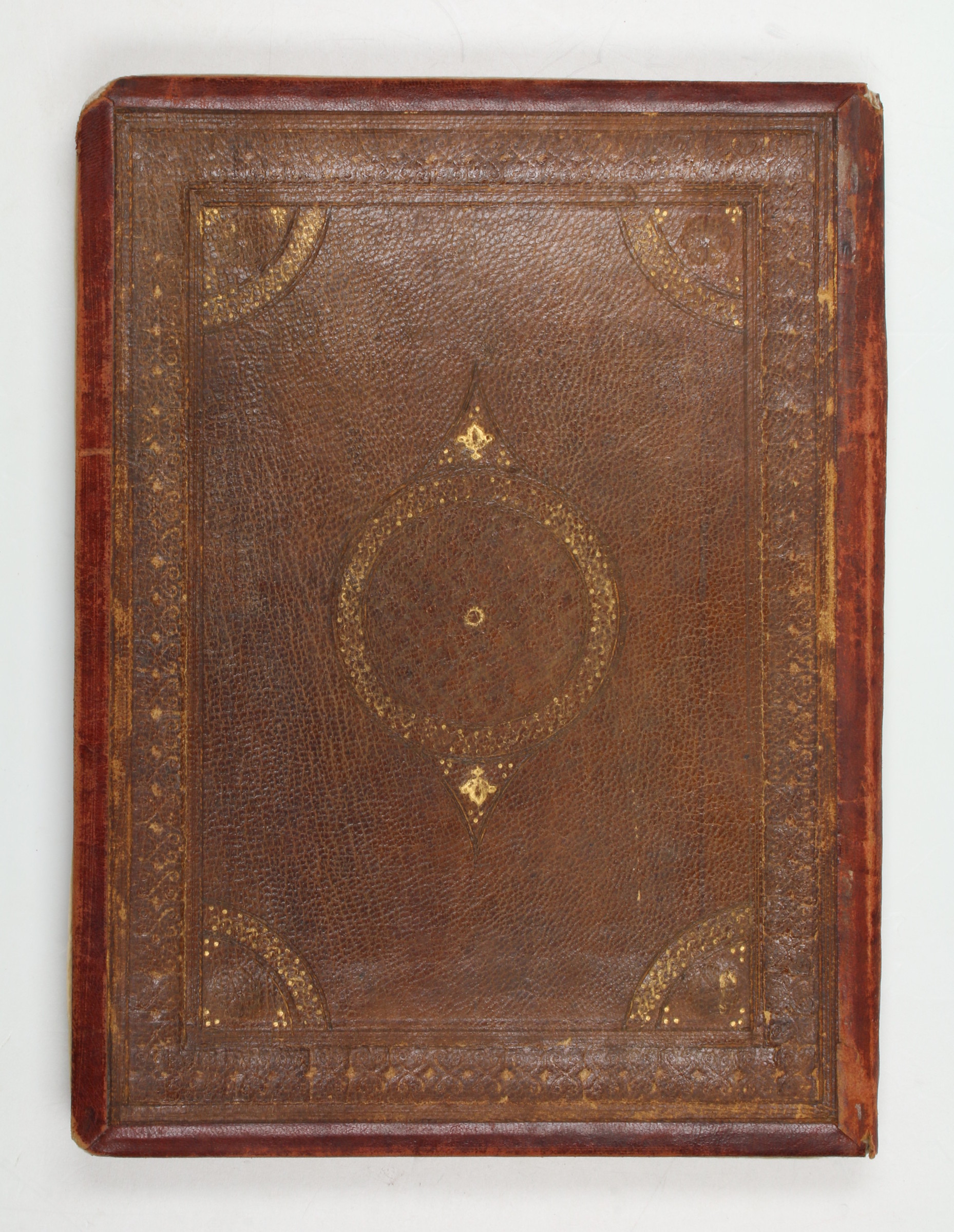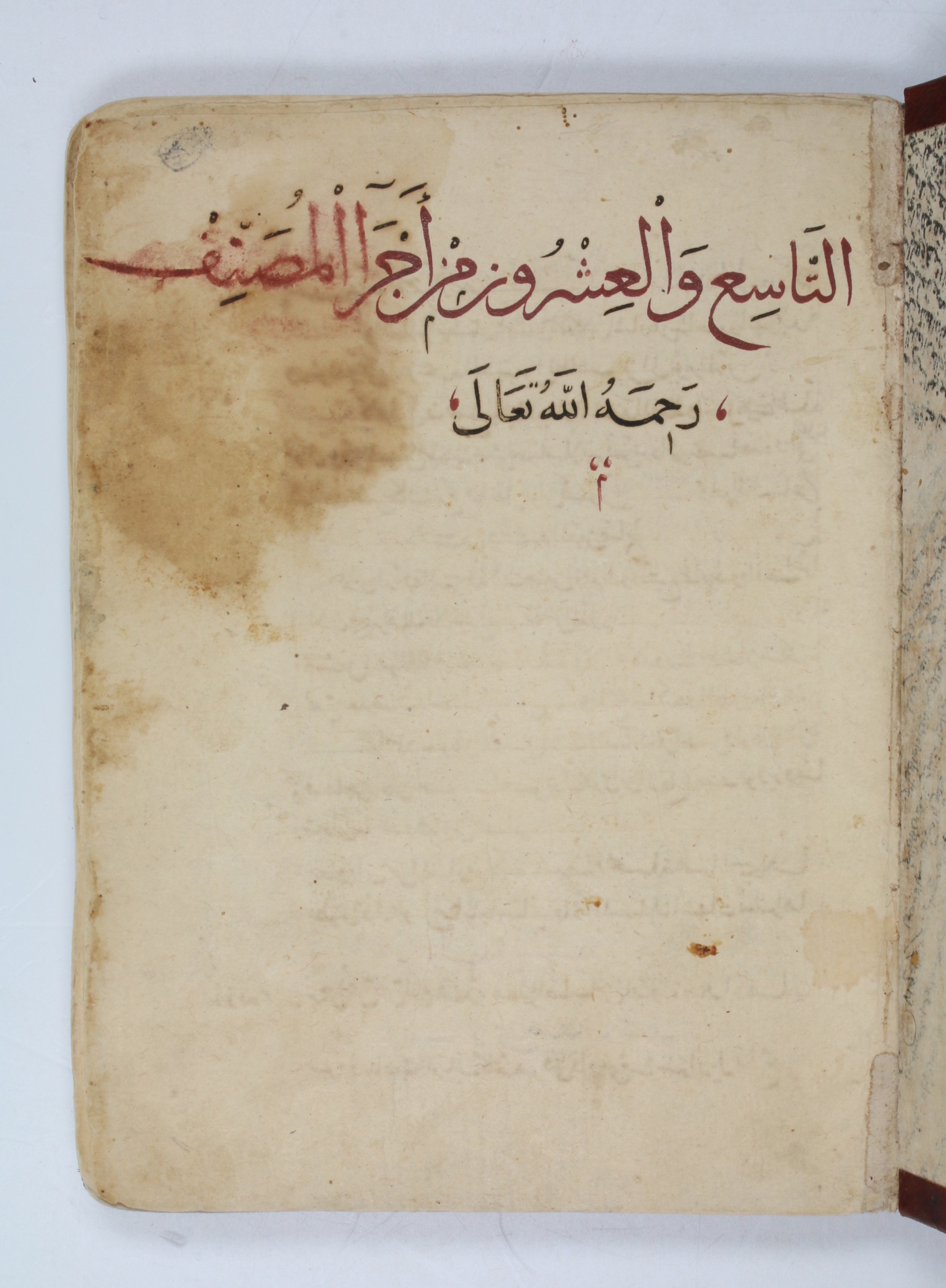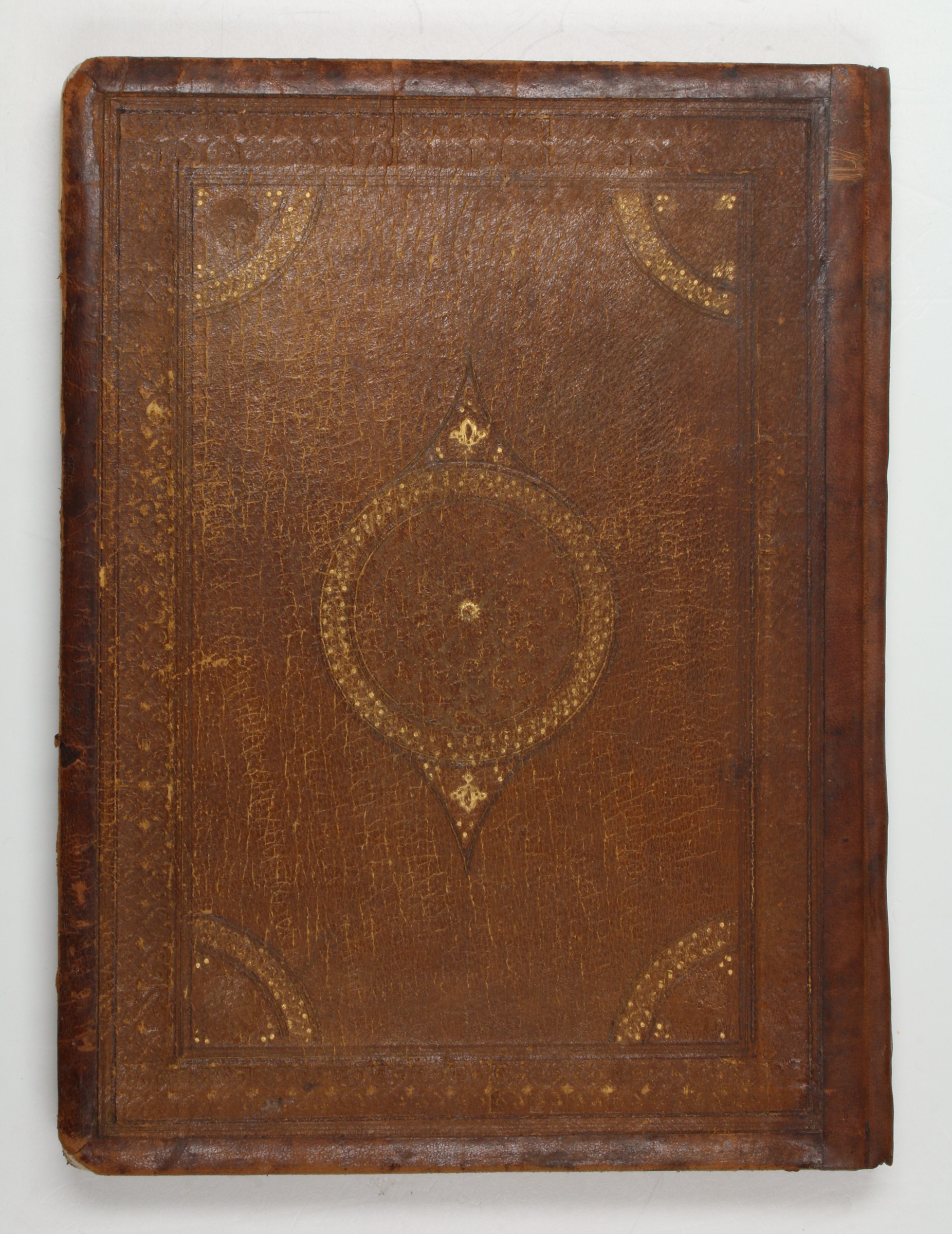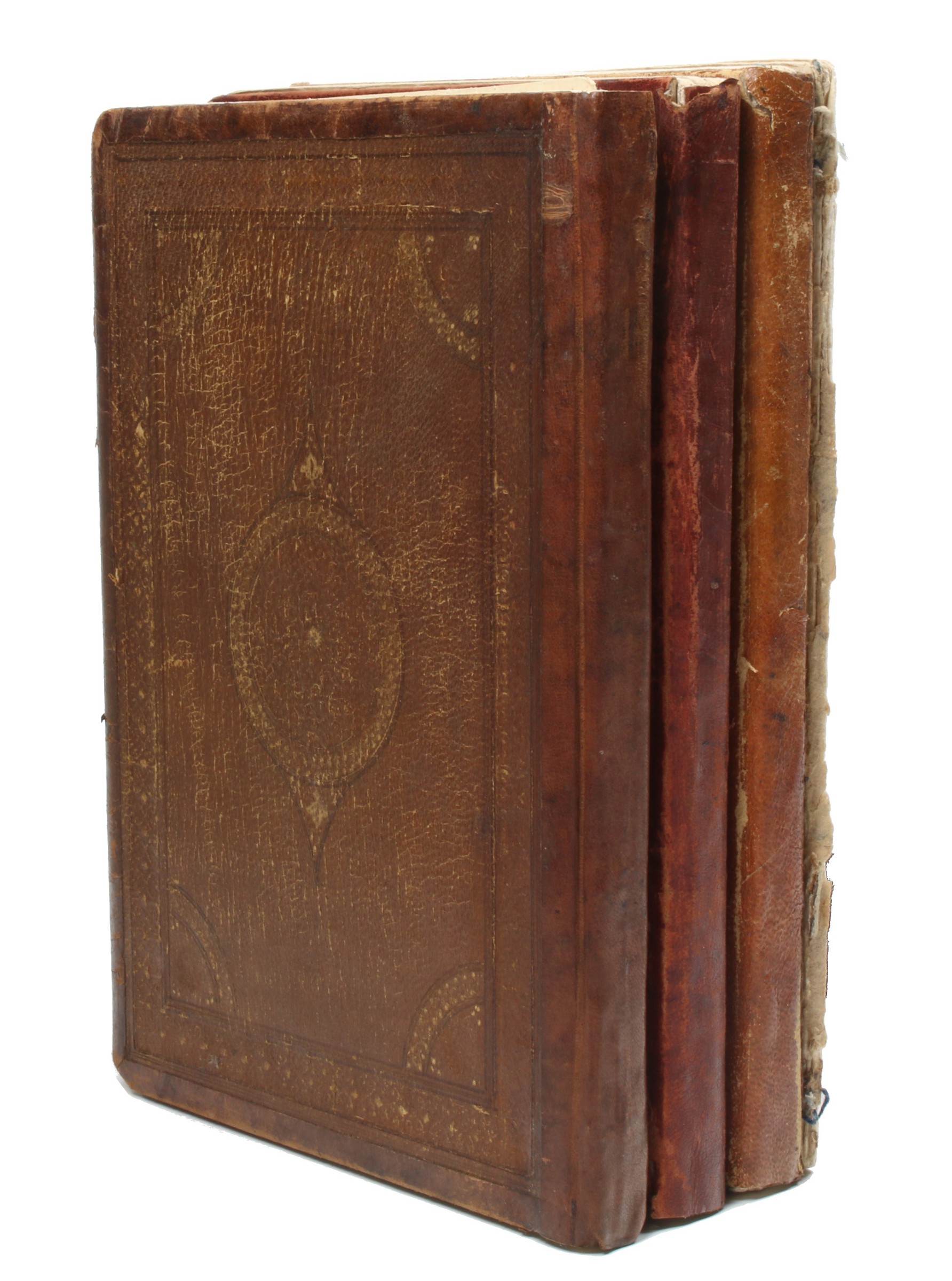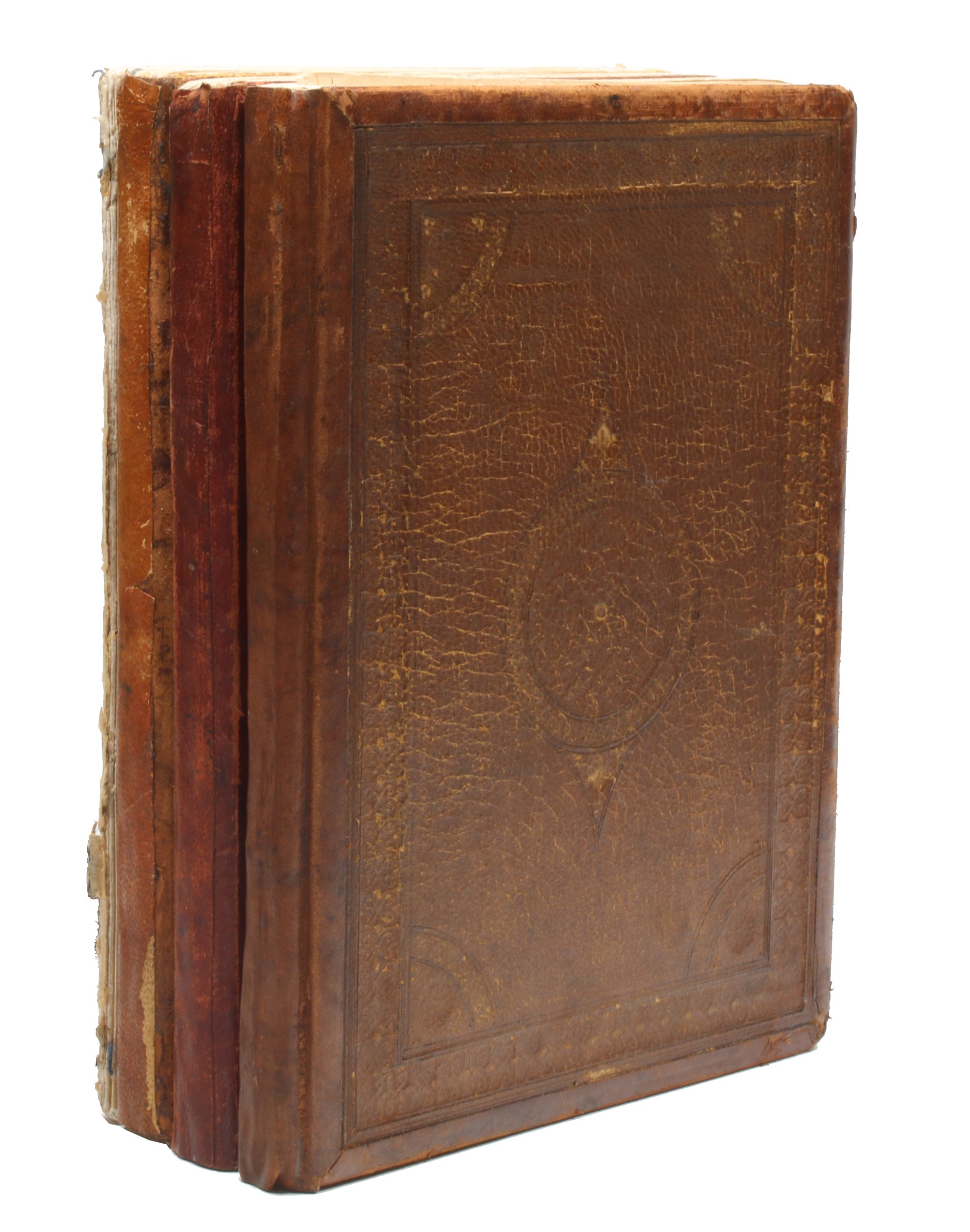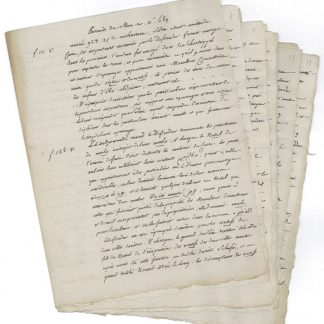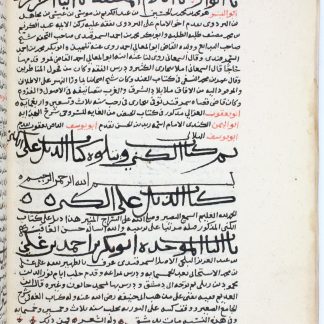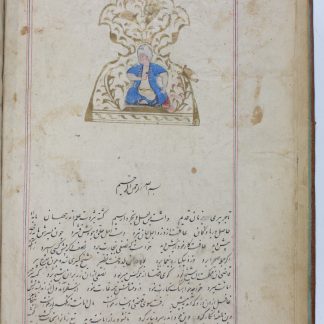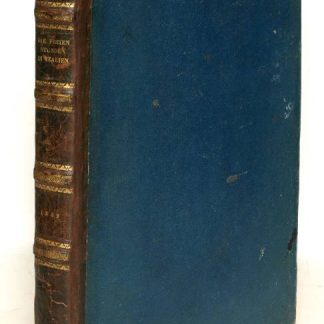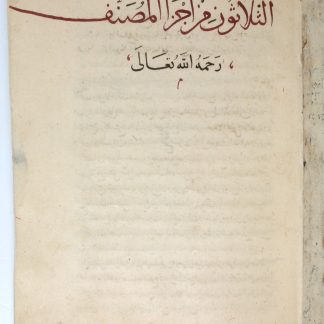Al-Safadi's literary encyclopaedia, copied during the author's lifetime
Al-Tadhkirah al-Safadiyah (al-Tadkhirat al-Salahiya).
4to (160 x 212 mm). Arabic manuscript on paper. 4 volumes. 32 (instead of ??) pp. 98 pp. 110 pp. 120 (instead of 124?) pp. 20 lines to the page, written in black and occasionally red ink on smoothed, strong buff paper. 3 later brown morocco bindings. Stored together in custom-made tan half-morocco solander case.
€ 140,000.00
Copied within the author's lifetime and partly from the author's own original manuscript: an encyclopedia of Muslim history and literature, originally written in more than forty-six volumes by Khalil ibn Aybak al-Safadi (1296-1363). It appears that much of the original manuscript was already lost or scattered over the course of the 14th century in which it was written, and even the few extant volumes of the present set are dispersed over several libraries in India, Egypt, Iraq, and beyond. This may explain why a book of such historical and cultural importance was never published - excepting Volume 14, which was printed in Iraq in 1979, under the title "Al-Mukhtar min shi'r ibn Daniyal".
The present four volumes comprise volumes 27 through 30 of al-Safadi's monumental encyclopedia: a fragment of the end of Volume 27, copied from the author's own manuscript (as attested by the colophon); the complete Volume 28, for which the copyist mentions that the original is lost and he has copied this from a manuscript at the Mahmudiyah Library; the complete Volume 29, the original of which is also claimed to be lost, while this is said to be copied from the manuscript of "Al-Izz al-Mawsili", and Volume 30, near-complete, lacking only a few final leaves.
Four other volumes from this same set, in the same hand, survive in the Chester Beatty Library, Dublin, which holds Volumes 14, 24, 25, and 26. Variously copied from the author's original text or from a library collection or private hands, this set has a striking pedigree. Volume 29 notes its source as a manuscript owned by an Al-Izz al-Mawsili, which may refer to the Syrian poet Izz al-Din al-Mawsili (d. 1387), again a Mamluk contemporary of the author and famous for his marvel poem in praise of Muhammad. Volume 28, meanwhile, mentions a source in the Mahmudiyah library, possibly the library of the Mahmudiyah Madrasa in Cairo, founded in the 14th century. Not only was the Mahmudiyah "the largest madrasa library in Mamluk Egypt and Syria", but it was based around the life's work of a private collector, a contemporary of the author who "was known for his love of collecting rare books in the hands of their original authors" (Wynter-Stoner, pp. xviii & 1).
Taken together, these copies of an important manuscript - one disbanded within decades of its authorship - are both a fantastic survival and a fascinating snapshot of the movement of manuscripts among the mixing literary cultures and intellectual fervour in 14th century Mamluk Syria, Egypt, and Palestine.
Despite the partial state of one volume and the missing leaves of another, the manuscripts are notably bright and clean, with only minor hints of soiling and quite a clear and legible scribal hand.
GAL II, 32; S II, 28. Kyle Wynter-Stoner, The Mahmudiyah: The History of a Library, Its Books, and Its Readers (Chicago: University of Chicago, 2022).

